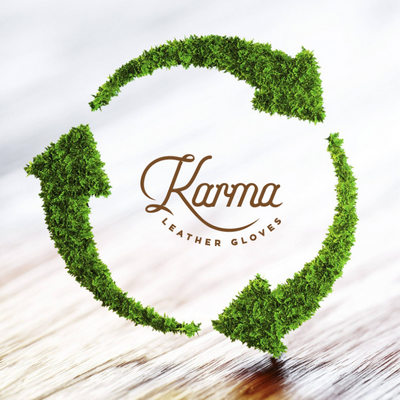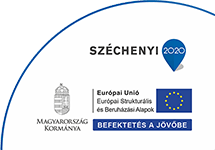My name is Bernadett Schweitzerné Hornicz, and I'm the owner of PGI a glove manufacturing company, and a founding member of Karma Leather Gloves. To share our knowledge and ideas on glove manufacture and sustainability, we are creating a blog. Keep up with our series!
In public, I mostly highlight the value and challenges of the glove industry, but you may have also heard me promoting the Karma Gloves brand or mentioning our work on a recent movie or pop icon. We're not great speakers, and sometimes we even fail as businessmen, but since 1994 we've been trying to preserve the handmade technology of glove-making. A broader family helps us in everything from manufacturing to office administration, and my close-knit family manages the business. That's not unusual in this field of work. We're proud of it, and we appreciate the knowledge they bring.
We're starting a blog today because there's a subject that's been on our minds for a while but is challenging or downright terrifying to discuss. Since sustainability is a difficult concept to grasp, I'd prefer to use the phrase "adapting to a changing world." I intend to discuss some lighter topics like fashion, the arts, or anything else that comes to mind that we think would be interesting.
Here we come to the first sensitive point.
Sustainability will be the primary focus because it is what I am most worried about. There are a lot brighter individuals than me who are far better experts than I am in this field. With my blog, I want to portray the leather industry in general and the glove industry in particular. I also want to discuss honestly about delicate subjects honestly, share the information I've learned, and showcase our sustainability effort.
HERE WE COME TO THE FIRST SENSITIVE POINT.
I notice that everyone has an opinion, but we don't always pay attention to one another and attempt to comprehend different viewpoints. We often criticize. The real job starts when we start to listen to the other person because at that moment there are arguments, counterarguments, things to consider, or questions to ask. We are open to constructive criticism, opposing viewpoints, and provocative inquiries because these things help us develop. Since every action has repercussions that cannot be ignored, we always strive to see both sides of the story. And then the story about where our sustainability project started:
So now I'll skip to 2018.
International partners have been increasing their pressure on the need for a sustainability certificate. Well, okay, but what precisely do you mean? I asked them. The response was, "Never mind, just do something we can put on the website." Anyone familiar with us is aware that we never act for the sake of acting. As a little business, I began to consider what might be done at that time. I looked up the rivals online and read blogs and articles about this topic. At the time, I believed that, as a tiny firm, we lacked the means and capacity to undertake a large-scale project.
Correspondingly:
- We set up a water filtration system, and people began drinking water from their reusable bottles rather than plastic bottles. This was amazing because, over the summer, one large bag of pill bottles was thrown away every week.
- In the spirit of the Who Made My Cloth initiative, we started to introduce ourselves on social platforms, introduced our colleagues, and communicated that we don't have children working for us. This is all just a pretense, and these characteristics are important only for fast fashion businesses, but they are natural for us. I no longer see it as something to be highlighted, but rather as the bare minimum that should be expected from any European manufacturer or brand
- The profession has always matched societal criteria: 80% of our workforce is women; there are women in middle and upper management too; and in the same field, people get paid the same way.
- The environmental impact of manufacturing may be observed in waste management reform, in which garbage is treated at the source, separated, and collected separately for further recovery.
- Stuffing a box bag with the remaining leather
- Pieces that may be recycled for jewelers or given to schools for technological classes or the nursery for picture gluing.
- We also collect basic garbage separately, such as plastic and paper.
At the time, I felt it was fantastic; we were doing all we were supposed to do, and our consumers were pleased.
Then the pandemic hit, and we were confronted with a slew of other challenges that led us to conclude that what we had done thus far wasn't enough.
Since the epidemic, I've discovered that everything in our external and internal environment is changing so rapidly that it's impossible to keep up-to-date, and the business-management approaches that I learned from my father over the previous 20 years are no longer effective. This created a sense of hesitation in me, pushing me to take action. METU is where I started my training in sustainable fashion management. With that, I began to scrape the surface of the situation. It's not the fault of the training that it just scraped the surface; it's the depth and complexity of the subject that it would take years of dedicated study to fully understand. The farther I probed, the more I realized that we had accomplished something with what we had done thus far, but that this was possibly the bare minimum that should be expected.
Writing the dissertation pushed me to go through the process of defining my present perspective on the subject. This helped me find a solution.
But anyone who believes that's the end of it is mistaken; this was only the beginning. I've begun to plan my next steps.
This blog will walk you through the procedure, element by element. Education and collaborative thought are at the heart of it, which I believe will be a further engine of growth.






















